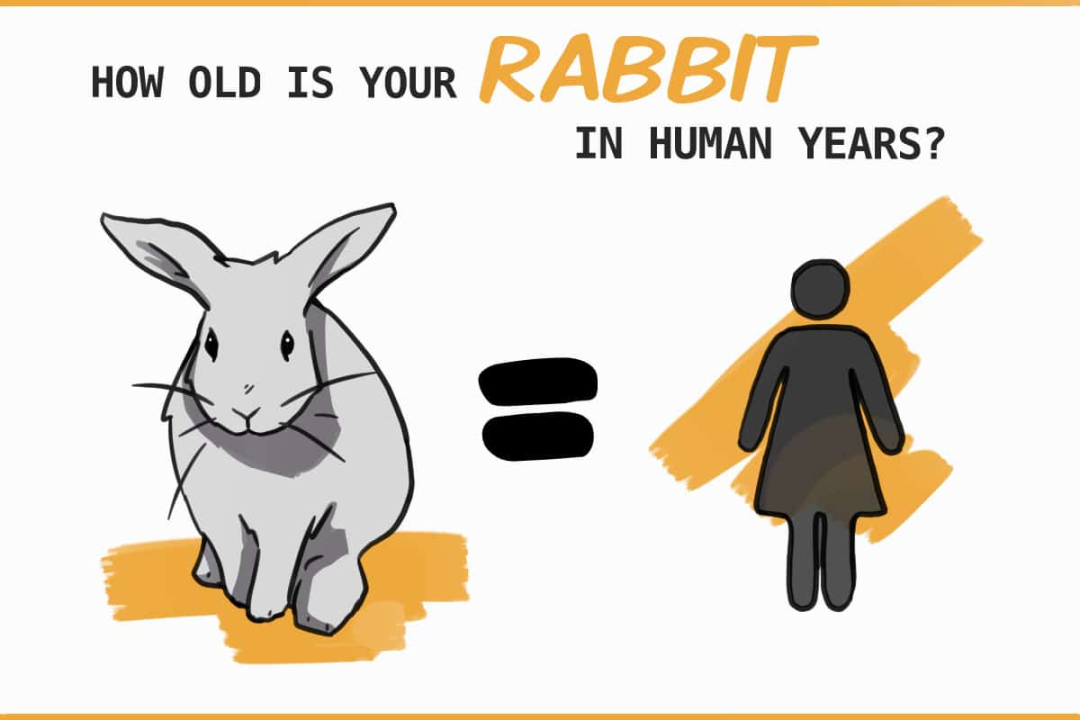How Many Rabbit Years is One Human Year?
Do you ever wonder how old your furry friend is in human years? While it’s common knowledge that dogs age differently than humans, what about rabbits? Rabbits are beloved pets known for their adorable appearance and playful nature. If you’re curious to know how many rabbit years equate to one human year, keep reading to find out!

Different Aging Rates
It’s important to understand that rabbits and humans have different aging rates. While humans generally live for several decades, rabbits have a much shorter lifespan. On average, rabbits live for about 8 to 12 years, depending on their breed and overall health. This means that their aging process is accelerated compared to humans.
Unlike humans, rabbits go through a rapid growth phase during their first year of life. They reach sexual maturity as early as three to eight months, depending on the breed. After their first year, their growth slows down, and they enter adulthood.
The Rule of Thumb
Although there isn’t an exact conversion rate for rabbit years to human years, there is a general rule of thumb that many rabbit owners use to estimate their pet’s age. This rule suggests that one rabbit year is equivalent to about four human years.
Based on this rule, a two-year-old rabbit would be approximately equivalent to an eight-year-old human. However, it’s important to note that this is just an estimate and may not be completely accurate.
Factors Affecting Aging
Several factors can influence the aging process in rabbits, just as they do in humans. These factors can include genetics, diet, exercise, and overall health. Rabbits that receive proper care, a balanced diet, regular exercise, and veterinary check-ups may have a better chance of living longer and healthier lives.
It’s crucial to provide your rabbit with a suitable environment, a nutritious diet consisting of fresh hay, vegetables, and a limited amount of pellets, and plenty of opportunities for exercise. These factors can significantly impact your rabbit’s overall well-being and potentially extend its lifespan.
Frequently Asked Questions (FAQs)
1. Can rabbits live longer than 12 years?
While the average lifespan of a rabbit is around 8 to 12 years, there have been cases of rabbits living beyond this range. With proper care and a healthy lifestyle, some rabbits have reached 14 years or even longer. However, it’s essential to remember that individual rabbits may have different lifespans, and genetics also play a role.
2. Is it accurate to use the one rabbit year equals the four human years rule?
While the one rabbit year to four human year rule is widely used as an estimate, it’s important to understand that it may not be entirely accurate. Every rabbit is unique, and various factors can affect its aging process. It’s always best to consult with a veterinarian to get a more accurate assessment of your rabbit’s age.
3. How can I ensure my rabbit lives a long and healthy life?
To help your rabbit live a long and healthy life, there are several key steps you can take. First, provide them with a suitable living environment that includes a spacious cage or enclosure. Second, offer a balanced diet consisting of fresh hay, vegetables, and a limited amount of pellets. Third, ensure they receive regular exercise, such as supervised playtime outside their enclosure. Lastly, schedule regular veterinary check-ups to monitor their health and catch any potential issues early on.
4. Are there specific rabbit breeds that tend to live longer?
While individual rabbits within a breed may vary, certain rabbit breeds are known for their longer lifespans. For example, the Holland Lop and the Mini Rex are two breeds that tend to live longer compared to others. However, it’s important to note that lifespan can also be influenced by factors such as genetics and overall care.
Related Articles…
Copyright Notice:
All images featured on this site are sourced from the internet, copyrights belong to respective owners. Should you own any image and require it to be removed, please contact us.